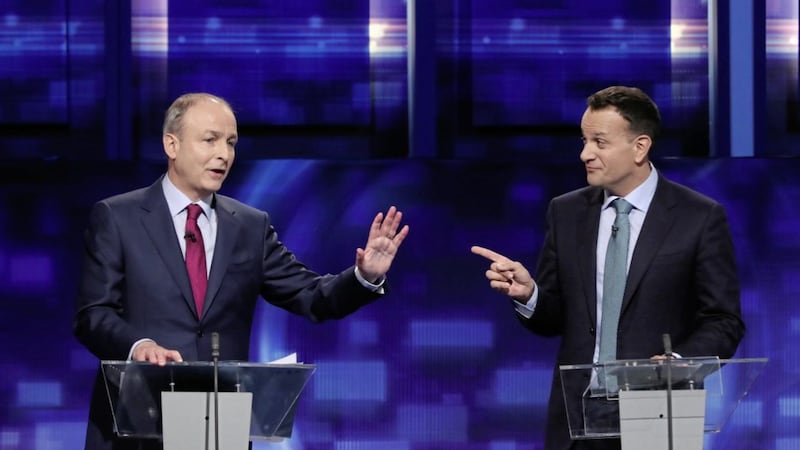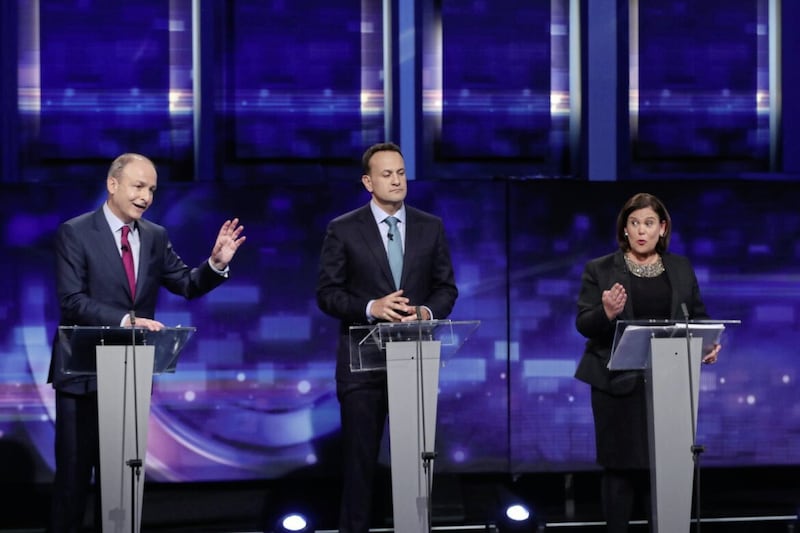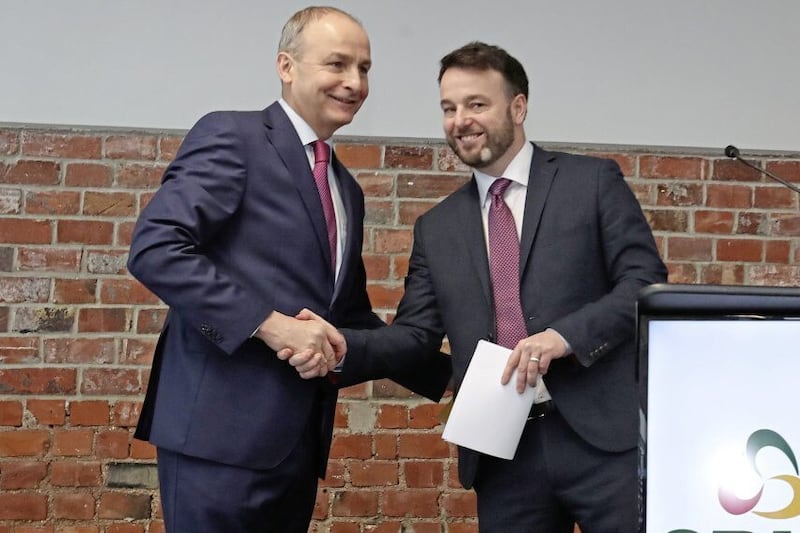A joint framework document by Fianna Fáil and Fine Gael for a potential coalition includes establishing a government unit to work towards "consensus on a united island".
The policy paper outlines how the next government will navigate the post-Covid-19 environment and contains 10 key "pillars" it says will improve Irish society.
Leo Varadkar and Micheál Martin plan to meet smaller parties including the Green Party, Labour and Social Democrats in a bid to convince them to support them in power.
Both Fine Gael and Fianna Fáil have ruled out going into government with Sinn Féin.
The 24-page document includes a commitment to set up a unit in the taoiseach's department "to work towards a consensus on a united island".
Under a section entitled 'A Shared Island', it states: "We are committed to working with all traditions on the island, to build consensus around a shared future. This consensus will be underpinned by the terms and institutions of the Good Friday Agreement and by absolute respect for the principle of consent enshrined therein.
"This unit will examine the political, social, economic and cultural considerations underpinning a future in which all traditions are mutually respected."
Other pledges include expanding universal healthcare access, prioritising home ownership and greater security for renters.
The document's 10 key "pillars" are: reigniting and renewing the economy; universal healthcare; housing for all; a new social contract; a new green deal; a better quality of life for all; supporting young Ireland; opportunities through education and research; a shared island; at the heart of Europe: global citizenship.
The paper was circulated to TDs, senators and MEPs ahead of parliamentary party meetings yesterday evening.
Fine Gael TD and justice minister Charlie Flanagan described the deal as a "no-brainer", but said a lot more work is needed in order to form a stable coalition.
Fianna Fáil's negotiator Michael McGrath said: "People want to see parties now get on with the process of trying to form a government in the coming weeks."
Sinn Féin TD Louise O'Reilly said the document "is a construct designed to keep Sinn Féin out of government".
"It allows them to continue the politics of exclusion and to nod in the direction of policies they have put absolutely no substance into," she said.
"I would be surprised if any of the parties who stood on a platform of change if they found anything in this document that is worthwhile."
A number of the smaller parties were also unimpressed with the document.
Labour leader Alan Kelly described it an "uncosted and purely aspirational", while a spokeswoman for the Social Democrats said it was "vague" and "disappointing".
A spokesman for the Greens said it will consider its contents.
Discussions have been continuing for weeks between Fianna Fáil and Fine Gael on forming a new government amid the coronavirus crisis.
The Republic's general election in February resulted in a near three-way tie between Sinn Féin, Fianna Fáil and Fine Gael.
Sinn Féin had a surge in support and won the most votes, but it did not run enough candidates to fully benefit – and no party won enough seats to form a government by themselves.
Taoiseach and Fine Gael leader Leo Varadkar and his party's minority government has remained in post during the impasse.





